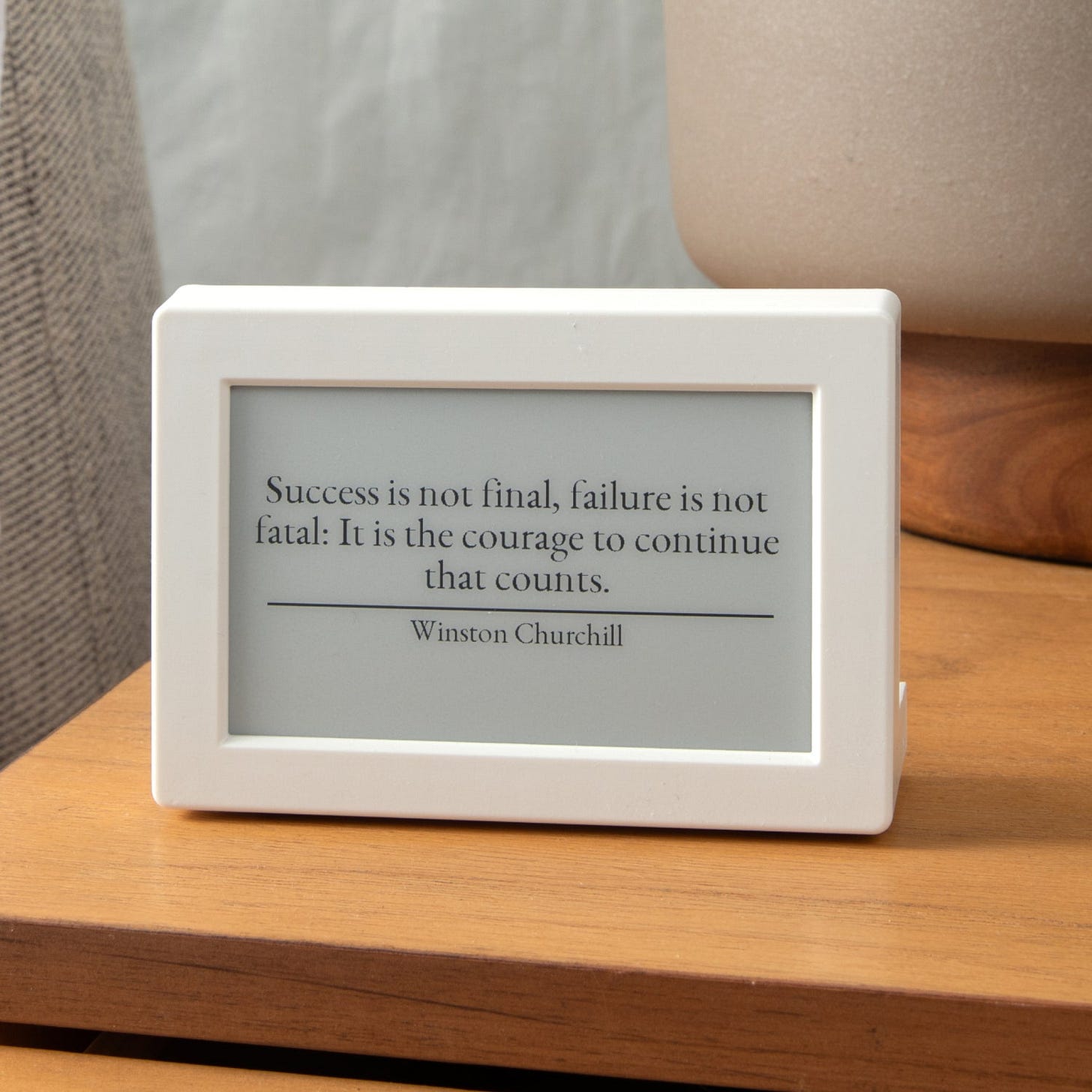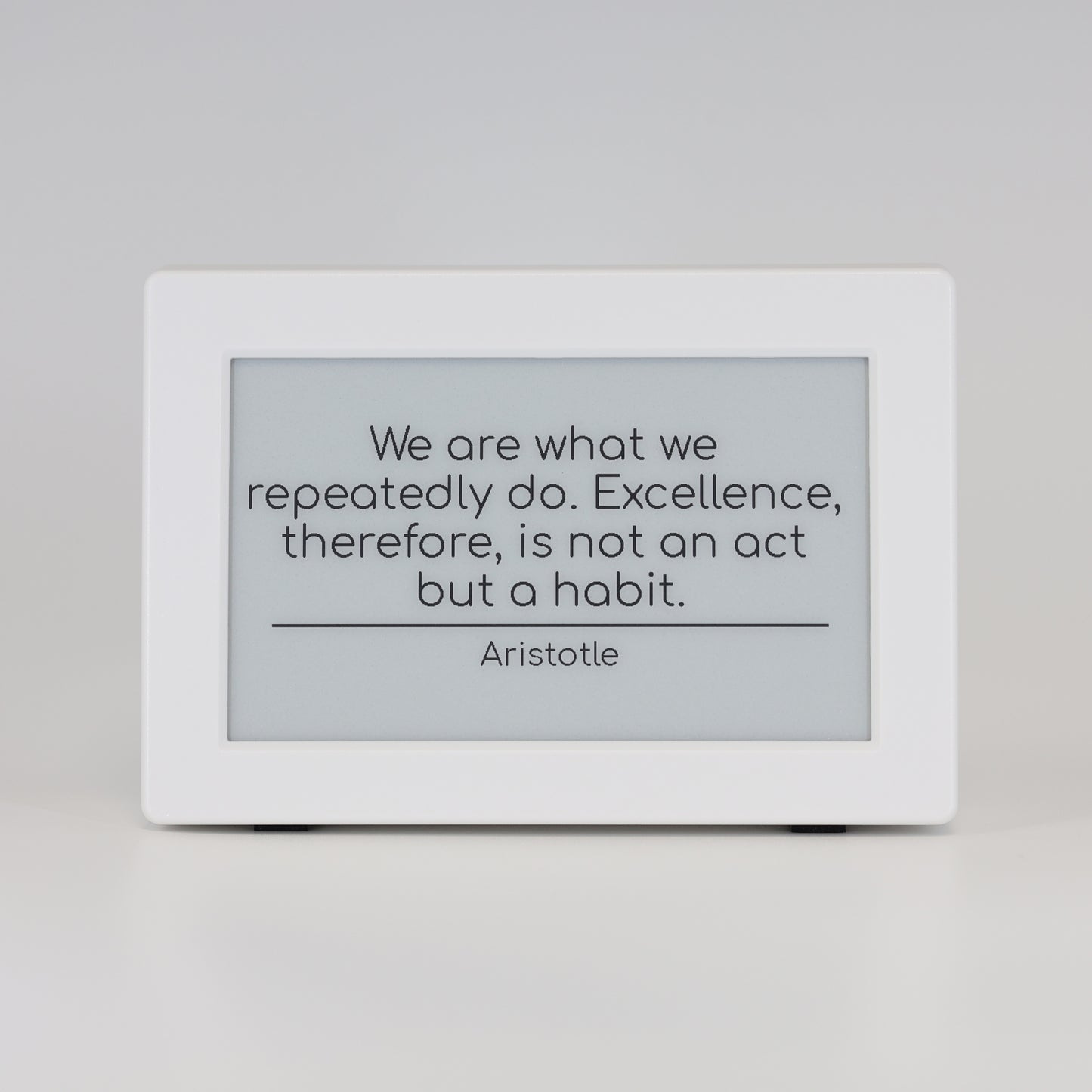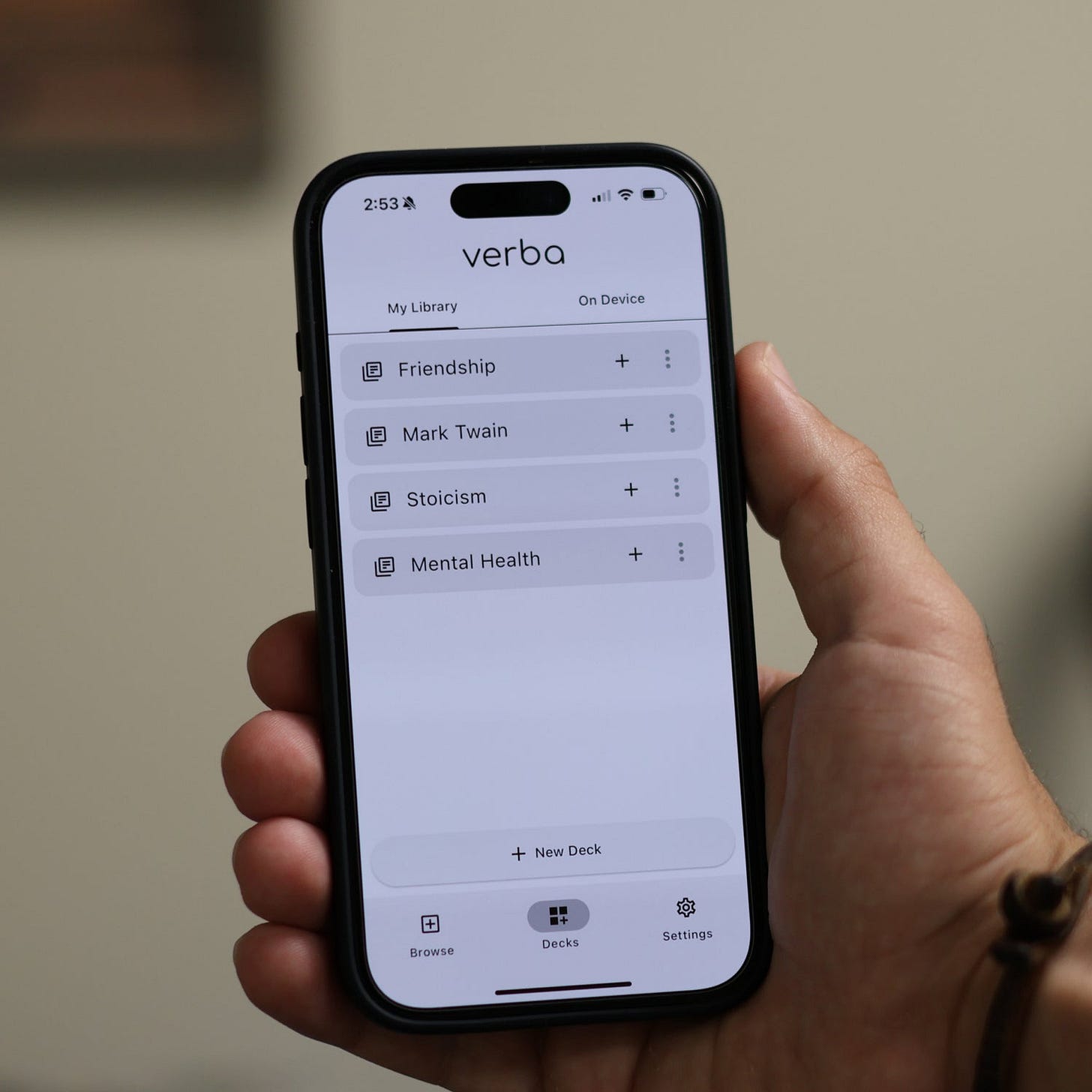On Making and Marketing Verba
Three Lessons from the Journey
From Dan
October 2024 — Brooklyn, NY
In February of this year, my friend John and I set out to make something, and make something we did.
Long story short, we created a device, called verba, that is a display for quotes and affirmations. The device has a sleek design and e-paper display (think e-reader screen), so uplifting quotes are always within sight. The device has a free app and extensive library of quotes, so that you see exactly the sort of inspiration that you want to see.
What follows is not an advertisement for the device (although, we would not be upset if it piques your interest), but with the hope of telling a good story (and helping with SEO for the website), I figured that I would talk about some of the unexpected realizations we had throughout the process.
You see, creating a consumer product feels like trying to navigate an obstacle course in the dark, with a light that only turns on for a split second at random intervals, except it’s somehow immensely exciting. Without further ado, here are the lessons.
I — What is a Product?
Upon reading this, some of you may roll your eyes, but I promise you there is a lesson here. The beauty of life is that complicated things can be made simple. So, while we started off with a very vague idea of what a product is, we learned a good answer along the way.
So what is it?
Fundamentally, a product is a solution to a problem. And a market is a collection of people with the same problem. That’s it!
People buy things to address some fundamental need that they are experiencing.
As consumers, this part is unconscious, but in fact it’s a very accurate way of putting it. Even when we think we are just buying things without a need, we are likely just trying to avoid feeling bored or sad etc.
Why do you buy gas for your car? You need gas to get from point A to point B. Why do you prefer these (insert brand) shoes over $20 Walmart shoes? Not only because you need shoes to walk places, but because wearing a certain brand suggests that you are a certain type of person (wealthy, stylish, athletic, etc.)
So, if you would like to sell something, your product needs to either deliver something positive to the customer (think health, wisdom, happiness) or liberate them from something negative (think insecurity, pain, etc.).
If this all smells a bit manipulative, I promise it’s not. The key is that we must deliver the thing that we promise. If we promise something without actually delivering it (think about magic balance wrist bands etc.), that’s called a scam.
II — Not All Competition is Bad
Until fairly recently, I operated under the assumption that all things equal, if you have a product, you would rather have no competition than competition. Sounds logical right?
You’re probably picturing something like Coca-Cola and Pepsi. Pepsi gains customers, Coke loses customers. They share a relatively fixed pie.
To say that this reflects the entire business world makes a crucial assumption. The assumption is that, like the soda market, most markets are mature, meaning that growth is slow and people tend to know about the existing products in the market.
In reality, if you have a young (or non-existent) market, competition is actually your friend. Strange, right?
Competition is your friend because in this sort of market, you need to make people aware of the problem that your product is a solution for. And so, if you have 7 competitors all running ads to try to sell their products, you actually benefit from the awareness that they are paying for with their ads.
Think about something silly like fidget spinners. Before they were invented, people did not know that they would enjoy having something to play around with at their desk.
In the case of Verba, since there are not many competing products, our ad budget and other awareness tactics alone must make people aware of our device and the problem we’re solving.
For this reason, many say not to come up with a product and then find a market, but to find a market (a group of people with a common problem) and then create an excellent solution (a product) to a niche within that market.
With verba, the product came first and then the market, which fortunately appears to be working, but is admittedly a harder battle.
III — Everything is Made by People
I feel like, especially in the internet age, the world can often feel like it’s fixed and controlled by invisible forces. There’s a Steve Jobs quote to the effect that once you observe that everything is created by people, life will never feel the same.
We often take inventions and progress for granted, but every lamp post, every door handle, and every chair was somebody’s vision.
By realizing that everything is made by people, the world transforms from something cold and static to something brimming with life. It reminds us that we have the power to change things, no matter how small, especially as Americans.
If something annoys you, try to take it as an opportunity to improve it. Put pen to paper and try to sketch out a better design. No need to invent the next iPhone, but just try. Such a small act may change your perspective and maybe your life.
Conclusion
I hope you enjoyed these three lessons, and I hope to write about three more in a subsequent post.
If you are interested in learning more about the device, visit verbawords.com
Thanks for reading guys.
If you enjoyed this one, make sure to subscribe to receive posts like this via email and consider sharing with a friend.






